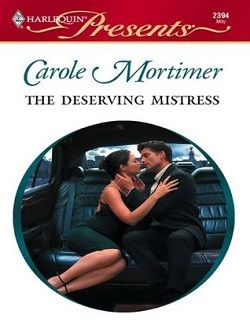Chapter One
March 1804
The village of Arrandale was bathed in frosty moonlight. Nothing stirred and most windows were shuttered or in darkness. Except the house standing within the shadow of the church. It was a stone building, square and sturdy, and lamps shone brightly in the two ground-floor windows that flanked the door. It was the home of Mr Titus Duncombe, the local parson, and the lights promised a welcome for any soul in need.
Just as they had always done, thought the man walking up the steps to the front door. Just as they had done ten years ago, when he had ridden through the village with the devil on his heels. Then he had not stopped. Now he was older, wiser and in need of help.
He grasped the knocker and rapped, not hard, but in the silence of the night the sound reverberated hollowly through the hall. A stooping, grey-haired manservant opened the door.
‘I would like to see the parson.’
The servant peered out, but the stranger kept his head dipped so the wide brim of his hat shadowed his face.
‘Who shall I say is here?’
‘Tell him it is a weary traveller. A poor vagabond who needs his assistance.’
The servant hesitated.
‘Nay, ’tis late,’ he said at last. ‘Come back in the morning.’
He made to shut the door but the stranger placed a dirty boot on the step.
‘Your master will know me,’ he stated. ‘Pray, take me to him.’
The old man gave in and shuffled off to speak to the parson, leaving the stranger to wait in the hall. From the study came a calm, well-remembered voice and as he entered, an elderly gentleman rose from a desk cluttered with books and papers. Once he had passed the manservant and only the parson could see his face, the stranger straightened and removed his hat.
‘I bid you good evening, Mr Duncombe.’
The parson’s eyes widened, but his tone did not change.
‘Welcome, my son. Truscott, bring wine for our guest.’ Only when the servant had closed the door upon them did the old man allow himself to smile. ‘Bless my soul. Mr Wolfgang Arrandale! You are returned to us at last.’
Wolfgang breathed a sigh of relief. He bowed.
‘Your servant, sir. I am pleased you remember me—that I have not changed out of all recognition.’
The parson waved a hand. ‘You are a little older, and if I may say so, a little more careworn, but I should know you anywhere. Sit down, my boy, sit down.’ He shepherded his guest to a chair. ‘I shall not ask you any questions until we have our wine, then we may talk uninterrupted.’
‘Thank you. I should warn you, sir, there is still a price on my head. When your man opened the door I was afraid he would recognise me.’
‘Truscott’s eyesight is grown very poor, but he prefers to answer the door after dark, rather than leave it to his wife. But even if he had remembered you, Truscott is very discreet. It is something my servants have learned over the years.’ He stopped as the object of their conversation returned with a tray. ‘Ah, here we are. Thank you, Truscott. But what is this, no cake? Not even a little bread?’
‘Mrs Truscott’s gone to bed, master.’
Mr Duncombe looked surprised. ‘At nine o’clock?’
‘She had one of her turns, sir.’
‘Pray do not worry on my account,’ put in Wolfgang quickly. ‘A glass of wine is all I require.’ When they were alone again he added drily, ‘Your man does not want to encourage dubious fellows such as I to be calling upon you.’
‘If they knew who you are—’
‘They would have me locked up.’
‘No, no, my boy, you wrong them. Not everyone in Arrandale believes you killed your wife.’
‘Are you quite sure of that, sir?’ asked Wolfgang, unable to keep a note of bitterness from his voice. ‘I was found kneeling over her body and I ran away rather than explain myself.’















